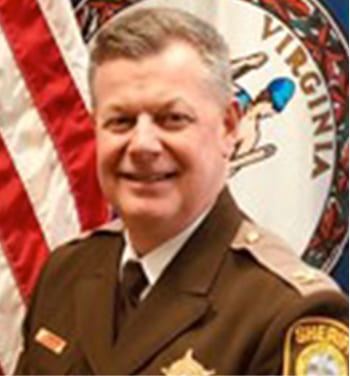Saving Lives
By: Sheriff Robert P. Mosier
Office of the Sheriff
Fauquier County, VA
When I was a Lieutenant at the Sheriff’s Office in Fauquier County, Virginia, I pulled over a young man, (on his birthday unbeknownst to me until I saw his driver’s license), and arrested him for drunk driving. Many civilians regard twenty-somethings, who drink, as going through a rite of passage. You know, young people turn twenty-one and they can’t wait to drink legally. However, they cannot legally drink and drive, as was evident in this case.
That young man was belligerent, angry, foul-mouthed and disrespectful. I remained respectful, calm and professional despite his attempts to try to provoke me. A few years after that arrest, I was in Bosnia in 1997, serving with the U.S. Department of State’s International Police Task Force, when a reporter from the then Potomac News interviewed me for a series he was writing for his newspaper. He wanted to feature a Virginia officer and I was his subject. Accompanying him for the interview was his photographer, who appeared to be keen to speak to me, but was relatively quiet for most of the Ride Along interview.
Later that afternoon, the photographer finally asked, “You don’t remember me, do you?” With that, he reminded me he was the same young man, the same drunk driver, I arrested that fateful night, a few years before, back in Virginia. He was genuinely happy to see me this time and enthusiastically exclaimed, “You changed my life!” He told me he had given up drinking because of our first encounter and that experience changed his life around.
Now, 24 years later, the story has come full circle. A few weeks ago, I was at a professional dinner and the same gentleman re-introduced himself for the third time. This time, he shared with me that he was working with young people and I cannot help but think what a good role model he is and a great advertisement for everyone to not drink and drive!
As Sir Robert Peel** suggested in his Principles of Law Enforcement, “The police must be stable, efficient and organized” and “No quality is more indispensable to a policeman than a perfect command of temper. A quiet, determined manner has more effect than violent action.” Apparently, it was my calm, but firm demeanor that evening that made an impression on this young professional and made him re-examine his behavior.
I share this story with you because all too often, one reads about the heartbreaking tragedies that result when impaired drivers get behind the wheel of a car. Law enforcement officers encounter impaired drivers much too frequently. We either arrest them before a tragedy takes place or we pick up the pieces after a crash when deaths or maiming occur. The aftermath for victims’ loved ones is devastating. These drivers affect law officers’ lives forever too and so our goal is to prevent such crimes and the disastrous results.
Law enforcement agencies prevent many drunk driving crashes. In fact, MADD recently recognized one of the deputies in our agency for the number of drunk driving arrests she made last year alone. Officers do serve as positive influences in our communities, despite the fact that many organizations and the media often vilify us in today’s world.
Unfortunately, there is much more that we must all do to bring about positive change. After so many years of solid law enforcement efforts to combat drunk driving nationwide, the legalization of marijuana has caused an increase threat of drugged driving. Despite news and social media negativity directed at law enforcement, we will not be discouraged in our efforts to keep our highways and communities safe. The public needs to rally and express to our lawmakers to not dilute our network of tested traffic safety laws, as has happened here in Virginia this year.
Together, we must be undeterred and build a stronger response to prevent maiming and needless loss of life caused by impaired drivers.
**Sir Robert Peel founded modern policing in 1829 with the establishment of the London Metropolitan Police Force. His commissioners developed the Peelian Principles, which established a set of ideals that defined ethical requirements that police officers must abide by in order to police effectively. He served as Prime Minister in the UK twice and was significant in his time for instituting social reform.



